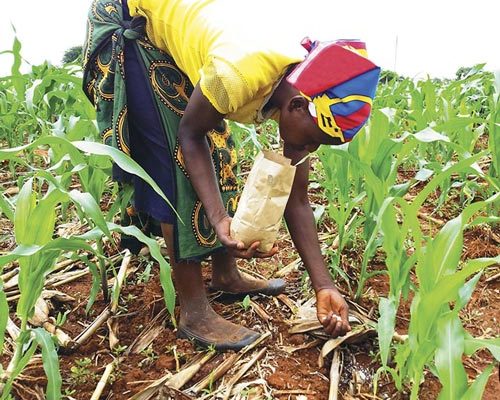Key finding
Companies are still only concentrating their investments in infrastructure in a few countries

Developments require a supportive enabling environment, which is not only a governmental responsibility, but critically also the role of industry through public-private partnerships. In countries where seed production takes place, more stringent standards and monitoring systems should be applied by companies to ensure that that social and labour rights are met in seed production.
Across all three regions, the most dominant ‘seed hubs’ – the countries with the most frequent company investment in seed business activities and associated infrastructure – are India, Thailand, South Africa and Tanzania. Companies reported investments for seed production most frequently, followed by breeding (Research & Development) and seed processing. Seed processing plants are expensive and often limited to the countries where companies have their main operations – especially in the case of specialised vegetable seed companies.
In Western and Central Africa investments, Nigeria, Ghana, Burkina Faso, and Côte d’Ivoire attract the most companies for investment in business activities. However, no such investments are reported for 14 of the 22 countries, indicating that the seeds industry in the region is still in its infancy. Moreover, the most prominent investors are regional companies; only a few global companies report breeding, seed production, and seed processing investments.
South Africa, Tanzania, Zambia and Kenya attract the most seed companies for business investment in Eastern and Southern Africa. Both global and regional companies invest in the region, with global companies’ investments concentrated in South Africa.
Similarly, the South and South-East Asia seeds industry invests mainly in a few countries. India, Thailand, Indonesia and Vietnam significantly attract more companies. Other countries with notable seed business investments include the Philippines and Bangladesh.
A supportive, enabling environment impacts the level of investment companies are willing to make in a particular country, from setting up research and processing plants to undertaking seed production activities and providing extension services essential for seed sector growth. Factors influencing the seed industry investments include the climatic context, regulation, infrastructure, and skilled local staff. Thus, the role of the public sector alongside investors is critical in addressing market entry constraints in countries with low or no private seed sector investments.
In seed production activities, some companies also involve smallholder farmers to produce seeds under fair contractual arrangements, which helps generate income and encourages knowledge transfer. A key area of improvement identified within business activities was the lack of adequate systems to ensure social and labour standards across seed production activities. Although many companies mentioned that they do not employ child and forced labour and commit to respecting the health and safety of workers – and sometimes disclosed policies on these commitments – in most cases, they lack consistent monitoring systems to ensure compliance. Furthermore, no company disclosed information on paying workers a living wage or requiring intermediaries to do so – another crucial issue requiring the industry’s action.
Constraints in investing in local seed business activities include national regulatory and legal frameworks that often hamper company operations, particularly in developing countries. In addition, countries have different variety testing protocols and evaluation periods. Also, differences exist in country membership status in relevant international bodies, such as the Union for the Protection of New Varieties of Plants, and the seed schemes of the Organisation for Economic Co-operation and Development.These constraints inhibit market entry and seed trade within regions and between countries. Companies must therefore invest in collaboration with research institutes, investors, civil society, and governments in industry growth, in more countries, to strengthen capabilities and means to reach more farmers in all regions. These efforts accelerate the pace of achieving food security and getting back on track to end hunger in our lifetime.
